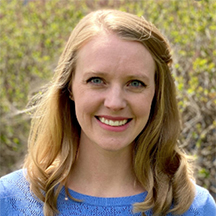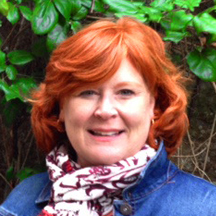New to Public Health-Cohort 3: Session 4-Communicable Disease
OVERVIEW
The New to Public Health Residency Program is an innovative development program designed to build confidence and competency for professionals who are new to public health.
The program is built upon the Foundational Public Health Services Model and develops enhanced knowledge and skills within the foundational areas and capabilities that are essential to public health practice.
The residency program includes an evidence-based practice project, peer networking, mentoring, facilitated reflection and journaling, simulation, and case studies to support the new resident as they transition to practice; while inspiring collaborative, interdisciplinary relationships to promote and protect health at a population level.
STATEMENT OF NEED AND PURPOSE
The residency program is designed to provide new public health professionals the foundational capabilities that are essential to public health practice. Overarching residency curriculum focuses on leadership, professional development, role-specific formation and competency. A residency program bridges the workforce by integrating the knowledge of experienced public health professionals and the fresh ideas of new staff to positively affect population health.
Integration of public health professionals from across jurisdictions allows the new public health professional to understand how diversity in the workforce strengthens essential services across city and county lines, and allows for enhanced networking and future collaboration.
Residency programs supplement state and local orientation programs and build upon department-specific policy, procedures, and tasks, to allow the resident to see a fuller picture of the field of public health.
This contemporary program utilizes a comprehensive practice model that supplements existing knowledge of staff and supports the synthesis of new ideas. The program promotes standardized tools for the participant to customize based on their individual practice.
TARGET AUDIENCE
This residency program is designed to meet the needs of nurses, social workers, sanitarians, health educators, and other public health professionals that are new to their roles.
ELEMENTS OF COMPETENCE
This continuing education (CE) activity is designed to improve learner competence, and focuses on the American Board of Medical Specialties’ areas of interpersonal communication skills, professionalism and systems-based practice, the Institute of Medicine area of employing evidence-based practice, applying quality improvement, and utilizing information, and the Interprofessional and Nursing areas of values/ethics, roles/responsibilities and interprofessional communication.
GLOBAL LEARNING OBJECTIVES
By the end of the residency program, the new public health professional as a member of the interprofessional healthcare team will:
- Apply learned concepts from the Foundational Public Health Services’ model to their public health professional practice.
- Increase knowledge, skills, and confidence for competent public health practice.
- Access tools and resources applicable to public health practice.
- Apply health equity and social justice concepts to public health practice.
- Demonstrate enhanced cultural competency knowledge and skills in their individual practice.
- Research, plan, and present a quality improvement or evidence-based practice project within their local health department or community.
SESSION LEARNING OBJECTIVES
By the end of this session, the new public health professional as a member of the interprofessional healthcare team will:
- Explain how public health provides timely, statewide, locally relevant and accurate information to the health care system and community on communicable diseases and their control.
- Identify statewide and local communicable disease control community partners and their capacities.
- Describe how public health receives laboratory reports and other relevant data, conducts disease investigations including contacting tracing and notification, and recognizes, identifies, and responds to communicable disease outbreaks for notifiable conditions in accordance with local, national, and state mandates and guidelines.
- Determine how public health assures the availability of partner notification services for newly diagnosed case of syphilis, gonorrhea, and HIV according to CDC guidelines.
- Define how public health assures the appropriate treatment of individuals who have active tuberculosis, including the provision of directly-observed-therapy in accordance with local and state laws and CDC guidelines.
- Explain how public health supports the recognition of outbreaks and other events of public health significance by assuring capacity for the identification and characterization of the causative agents of disease and their origin, including those that are rare and unusual, at the appropriate level.
- Recognize how public health coordinates and integrates categorically-funded communicable disease programs and services.
- Recognize how to access 24/7 laboratory resources capable of providing rapid detection.
- Prioritize and respond to data requests, including vital records, and to translate data into information and reports that are valid, statistically accurate, and accessible to the intended audiences.
- Indicate how a public health organization maintains and procures the hardware and software needed to access electronic health information and to support the department's operations and analysis of health data.
- Validate the proper systems are in place to keep health and human resources data confidential in a public health organization.
Reference: https://phnci.org/uploads/resource-files/FPHS-Factsheet-November-2018.pdf
SUCCESSFUL COMPLETION
Residents will view lectures, panel discussions, participate in cased-based and small-group discussions, participation in simulation and skill-based training, and participate in simulation, skill-based training, and gaming activities over a 12 month period of time.
The residency program also includes an evidence-based practice project, peer networking, mentoring, facilitated reflection, journaling to support the new resident as they transition to practice while inspiring collaborative, interdisciplinary relationships to promote and protect health at a population level.
SESSION SECTIONS |
|---|
| Session 4: Pre-Test |
| Communicable Disease 101 Module |
| Scavenger Hunt |
| Surveillance and Disease Investigation Module |
| Electronic Health Data |
| Contact Tracing |
| Epidemiology 101 |
| Motivational Interviewing Module |
| Outbreaks |
| Case Study |
| Discussion |
| Tuberculosis 101 |
| Sexually Transmitted Disease |
| Reflection |
| Discussion Post Check In |
| Session 4: Post-Test |
| Session 4: Evaluation |
| References |
 | Julianna ManskeNew to Public Health Residency Program FacilitatorJulianna Manske is the is facilitator and cofounder of the New to Public Health Residency Program and is employed with the University-Wisconsin Madison School of Nursing. Julianna spearheaded the workgroup in 2016 that developed and implemented the Southeastern Wisconsin Public Health Nurse Residency Program. This program, which ran from 2017-2020, served as a foundation to build the New to Public Health Residency Program, which supports public health professionals in their first year of employment at a local, regional, tribal, or state health department. Julianna serves as a co-chair on the Association of Public Health Nurses’ Education and Professional Development subcommittee. Julianna graduated from Concordia University in 2014 with a Master of Science in Nursing Education, and Carroll University in 2009 with a Bachelor of Science in Nursing. Julianna is passionate about workforce development and she is grateful to work with an incredible team developing the New to Public Health Residency Program and collaborating with public health leaders across the country. |
 | Hannah HayesNew to Public Health Residency Program Facilitator and Project ManagerHannah Hayes is the New to Public Health project manager, facilitator, and co-developer of the New to Public Health Residency Program. In 2018 Hannah completed her Master of Public Health (MPH) at the University of Wisconsin-Madison. During this time, Hannah partnered with the Southeastern Wisconsin Public Health Nurse Residency Program, where she assisted in the co-development of a toolkit for the dissemination and implementation of the residency program, which served as the foundation for the New to Public Health Residency Program. Hannah is currently employed by the University of Wisconsin-Madison School of Nursing as the Project Manager of the New to Public Health Project. Hannah graduated with her Bachelor of Science in Nursing in 2016. Hannah has experience in family practice & forensics, postpartum, and public health nursing in addition to serving as a public health clinical instructor. Hannah is passionate about social justice, empowering new professionals, and advancing the public health profession. |
 | Laura SaundersLaura A. Saunders, MSSW is with the University of Wisconsin-Madison, College of Engineering, Center for Health Enhancement System Studies, Great Lakes ATTC, PTTC and MHTTC and an independent consultant. Since 2001, Laura has designed, facilitated, and delivered MI and SBIRT training and coaching in person, online, and via distance learning in the fields of health care, human services, public health, and criminal justice. She has provided feedback and coaching to hundreds of learners who are interested in using evidence based practices to fidelity. Laura has also conducted train the trainer events. She joined the International group of Motivational Interviewing Network of Trainers (MINT) in 2006 and is an active Member of Wisconsin Motivational interviewing group. |
 | Ajay SethiAjay Sethi is Faculty Director of the Master of Public Health Program at the University of Wisconsin-Madison where he is also Associate Professor in the Department of Population of Health Sciences. He is an infectious disease epidemiologist and studies HIV, healthcare associated infections, COVID-19, and the human microbiome.
|
PLANNING COMMITTEE MEMBERS
| Hannah Hayes, MPH, RN University of Wisconsin-Madison, School of Nursing | Julianna Manske, MSN, RN, OCN University of Wisconsin-Madison, School of Nursing | Susan Zahner, DrPH, RN, FAAN University of Wisconsin-Madison, School of Nursing |
| Deborah Heim, PhD, MS, MN, BSN Public Health Nurse Consultant (PHNC) Wisconsin Division of Public Health Office of Policy and Practice Alignment (OPPA) for the SE region | Ajay Sethi, PhD, MHS UW-Madison School of Medicine and Public Health |
Acknowledgements
| Susan Zahner | Abra Vigna |
PLANNING COMMITTEE MEMBERS
| Hannah Hayes, MPH, RN University of Wisconsin-Madison, School of Nursing | Julianna Manske, MSN, RN, OCN University of Wisconsin-Madison, School of Nursing | Susan Zahner, DrPH, RN, FAAN University of Wisconsin-Madison, School of Nursing |
| Deborah Heim, PhD, MS, MN, BSN Public Health Nurse Consultant (PHNC) Wisconsin Division of Public Health Office of Policy and Practice Alignment (OPPA) for the SE region | Ajay Sethi, PhD, MHS UW-Madison School of Medicine and Public Health | Madeline Kornbeck Greendale Health Department |
CONTENT REVIEWERS
| Angela Acker University of Wisconsin-Madison, Populations Health Institute | Michael Jaeb University of Wisconsin-Madison, School of Public Health |
| Paula Bizot University of Wisconsin-Madison, School of Nursing | Abra Vigna University of Wisconsin-Madison, Populations Health Institute |
POLICY ON DISCLOSURE
It is the policy of the University of Wisconsin–Madison Interprofessional Continuing Education Partnership (ICEP) to identify, mitigate and disclose all relevant financial relationships with ineligible companies* held by the speakers/presenters, authors, planners, and other persons who may influence content of this accredited continuing education (CE). In addition, speakers, presenters and authors must disclose any planned discussion of unlabeled/unapproved uses of drugs or devices during their presentation.
For this accredited continuing education activity all relevant financial relationships have been mitigated and detailed disclosures are listed below.
*Ineligible companies are those whose primary business is producing, marketing, selling, re-selling, or distributing healthcare products used by or on, patients.
The ACCME does not consider providers of clinical services directly to patients to be ineligible companies.
The University of Wisconsin provides equal opportunities in employment and programming, including Title IX requirements. The University of Wisconsin fully complies with the legal requirements of the ADA and the rules and regulations thereof. If any participant in this educational activity is in need of accommodations, please contact [email protected].
Cohort-3 Disclosures
Accreditation Statement
 | In support of improving patient care, the University of Wisconsin–Madison ICEP is jointly accredited by the Accreditation Council for Continuing Medical Education (ACCME), the Accreditation Council for Pharmacy Education (ACPE), and the American Nurses Credentialing Center (ANCC) to provide continuing education for the healthcare team. |
Credit Designation Statements
American Nurses Credentialing Center (ANCC)
The University of Wisconsin–Madison ICEP designates this Enduring Material for a maximum of 7.25 ANCC contact hours.
Continuing Education Units (CEUs)
The University of Wisconsin–Madison ICEP, as a member of the University Professional & Continuing Education Association (UPCEA), authorizes this program for .725 CEUs or 7.25 hours
CERTIFIED HEALTH EDUCATION SPECIALISTS (CHES) AND/OR MASTER CERTIFIED HEALTH EDUCATION SPECIALISTS (MCHES)
Sponsored by University of Wisconsin–Madison ICEP, a designated provider of continuing education contact hours (CECH) in health education by the National Commission for Health Education Credentialing, Inc. This program is designated for Certified Health Education Specialists (CHES) and/or Master Certified Health Education Specialists (MCHES) to receive up to 7.25 total Category I continuing education contact hours. Maximum advanced-level CECH available are 1. Continuing Competency credits available are 7.25
Total contact hours: 7.25
Entry-level contact hours: 6.25
Advanced-level contact hours: 1.0
Available Credit
- 7.25 ANCC Contact Hours
- 7.25 CECH Approved Credits
- 7.25 Entry-level Continuing Competency credits
- 1.00 Advanced-level credits
- 6.25 Entry-level credits
- 7.25 University of Wisconsin–Madison Continuing Education Hours

 Facebook
Facebook X
X LinkedIn
LinkedIn Forward
Forward